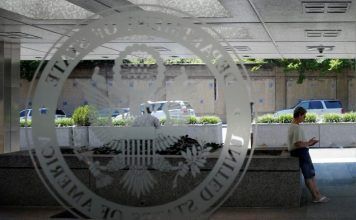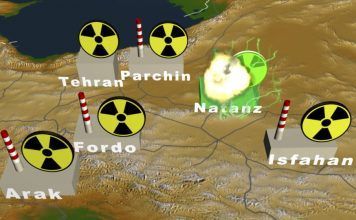By Arshad Mohammed
WASHINGTON, July 14 (Reuters) – A barter of Iranian natural gas for Iraqi oil as described by the Iraqi prime minister this week would likely violate U.S. sanctions on Tehran unless the U.S. issued a waiver permitting it, three former U.S. officials said on Thursday.
Iraqi Prime Minister Mohammed Shia al-Sudani on Tuesday said Iraq would begin trading crude oil for Iranian gas to end recurring payment delays to Tehran due to required U.S. approval for such transactions.
Tehran University to Admit Members of Iraqi Militia Group As Students
Sudani said Iran had cut gas exports to Iraq by more than half as of July 1 after Baghdad failed to secure U.S. approval to disburse owed funds, but Tehran had now agreed to resume gas exports in exchange for crude oil.
There are few details available about the potential barter, which could help defuse a political problem for Sudani since power cuts are unpopular during the sweltering Iraqi summer when temperatures can top 50 Celsius (122 Fahrenheit).
However, three former U.S. officials said a barter would likely run afoul of U.S. sanctions.
“It would be a violation of U.S. sanctions to conduct this kind of a barter transaction with Iran absent a U.S. national security waiver being issued,” said Richard Goldberg of the Foundation for Defense of Democracies think tank.
“This would be prohibited under the Iran Freedom and Counter-Proliferation Act, which prohibits any transaction related to energy with Iran,” added Goldberg, who served on the Trump administration national security council staff.
Secretary of State Antony Blinken issued a 120-day waiver on March 21, a State Department official said, allowing Iraq to pay Iran only for electricity imports, not for natural gas to fuel Iraqi domestic power generation.
Republican Lawmaker Blasts State Dept Response on US Envoy for Iran
“The March 2023 waiver, granted by the Secretary, allows Iraq to purchase electricity from Iran. Nothing else,” said the official on condition of anonymity. That waiver was announced by the State Department on March 31.
There has been speculation the waiver might be amended to allow barter, an issue the official declined to address.
“We are not in a position to preview any future decisions related to the waiver. We have no comment at this time regarding reports of a barter arrangement between Iraq and Iran,” the official said.
The Iraqi embassy in Washington did not immediately respond to a request for comment.
Former U.S. officials said the Treasury Department, which oversees most U.S. sanctions against Iran, defines the term “transaction” so broadly that it would cover a barter exchange.
“The test is whether it’s a ‘significant’ transaction. The test is not whether it’s denominated in one currency or another or whether … it’s a barter,” said a former senior Treasury official on condition of anonymity.
The former official said that could provide “enough wiggle room … for the U.S. to look the other way, but that is a political decision, that’s not a legal question.
“As far as a strictly legal question, it absolutely does violate U.S. sanctions,” he added.
Sri Lanka Set to Start Tea-for-Oil Barter With Iran Next Month
EXCLUSIVE- India Merchants Almost Halt Exports to Iran as Its Rupee Reserves Fall – Officials
(Reporting By Arshad Mohammed; Editing by Josie Kao)











